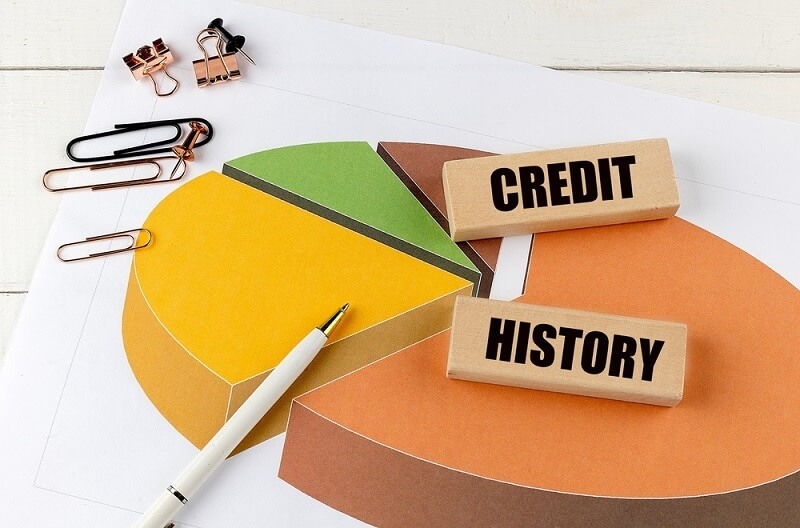Build Credit History from Scratch for Good Financial Future

It may feel challenging to start from scratch in terms of credit, but the first step to a healthy financial future is learning to establish a credit history from the ground up. It is necessary to have credit to do such things as borrow money, rent a house or apartment, and even apply for jobs. Knowing how to boost a credit score and understanding ways to build a credit history are the cornerstones of establishing a strong credit behavior early on.
If you are not comfortable using credit cards, it is still possible to establish credit without one, and we will discuss those options. This guide provides tips for beginners to build credit, along with actionable steps to develop a credit score, enabling everyone to confidently and responsibly start establishing a credit history.
Why Building Credit History Matters
Establishing credit history is not just about a number; it is one way to determine financial reliability. Lenders, landlords, and sometimes employers check credit reports to verify trustworthiness.
Why build credit:
- Lower interest rates: A solid credit history can translate to real savings on loans.
- Easier access to housing: Most landlords check credit history before a rental approval.
- Better approval for financing: Credit history will help the approval of personal loans and auto loans.
- More options for financial freedom: A healthy credit history qualifies someone for future or alternative investments.
Understanding the impact of good credit should motivate you to take responsible and consistent steps in building a strong credit history.
How to Build a Credit Score from Zero

The first part of building credit is figuring out how to do it in a way that will have a direct effect on your credit score. Even without a credit history, small deliberate actions can produce noticeable changes.
Surefire ways to build a credit score:
- Apply for a secured credit card
- You may add a deposit of some form of collateral to open the account.
- When using the card, do it responsibly to display your ability to pay things back on time!
- Become an authorized user
- You can get added to a family member’s or a trusted friend's credit account.
- Although you are not responsible for the account, you will benefit from its positive payment history.
- Report your rent and utilities paid
- some services allow rent and utilities to be reported and counted towards your credit history.
- This is a viable option for you if you don’t want to open a card right away.
If you follow through on all of these consistently, you will begin to build out your credit history while minimizing your risk.
Build Credit Without Credit Card Options
Some individuals may not want to pursue a credit card or may not yet qualify for one. However, you can build credit without a credit card. There are also other financial products and methods to establish a credit footprint.
Here are some things to consider:
- Credit-builder loans:
- Small loans that are held in a savings account until repaid.
- The payments are reported to credit bureaus to build a credit history.
- Secured personal loans:
- You use collateral, such as a savings account or certificate of deposit, to secure a loan.
- Timely payments made on the loan help develop a favorable credit profile.
- Retail or store credit accounts:
- Several store options offer small installment loans that may report to credit bureaus.
Here are some practical measures to begin improving your credit scores without getting a credit card.
Beginner Credit Building Tips
It matters how you start your credit journey. Below are some beginner credit-building strategies to encourage healthy credit growth and help steer clear of the mistakes others have encountered along the way.
Beginner Tips For New Credit Users:
- Pay on time every month: A history of on-time payments is one of the single most significant factors to credit.
- Keep your credit utilization low: Keep your spending above the minimum payments, but below 30% of available credit in your accounts.
- Track your credit reports for errors or fraudulent accounts: Periodically review your credit report to check for inaccuracies.
- Keep it small, and increase financing as you go: There is no need to race into many accounts at once.
- Keep a variety of credit types: A combination of loans, cards, and alternative credit all helps build credit.
In the initial stages of your credit history, it is essential to maintain consistency and awareness to build a solid foundation for good credit in the future.
Steps to Establish Credit History Quickly
Establishing credit history is a long-term journey, but there are steps you can take to improve your score more quickly.
Actionable steps include:
- Open a secured credit card or credit-builder loan.
- Responsibly engage with your account: Make small purchases and pay in full each month.
- Add yourself as an authorized user: Benefit as an authorized user on family or trusted friend accounts.
- Have your alternative payments reported: If you are not already aware, rent, utilities, and phone bills can help you build credit if you have these payments reported.
- Use accounts regularly and maintain them in good standing: Keep old accounts open (don’t unnecessarily close accounts you’ve had for a long time).
By following these steps, you will take action today to actively and positively shape your financial identity.
Common Mistakes to Avoid When Building Credit
Even the most motivated new credit user can encounter issues if they fail to avoid common mistakes. Steer clear of these mistakes to protect your progress:
Common mistakes that work against your credit building:
- Missed payments: Even missing one payment can have a long-term impact on your score.
- Too many accounts too quickly: Having too many inquiries into your credit report will lower your creditworthiness.
- Ignoring small accounts: Even balances below $100 can accumulate as negative marks on your report.
- Maxing accounts out: Attractively high utilization levels result in giving lenders the impression that you are a risk to take on.
- Ignoring the privileges of monitoring your credit: If you don’t monitor your credit, mistakes won’t be noticed until they negatively impact you.
When you remain aware of these types of mistakes, you will be able to stay on top of building your clean, strong credit profile.
Understanding Credit Scores and Reporting
To effectively build credit history from scratch, it’s essential to understand the mechanics of credit scores.
Credit score factors:
- Payment history (35%): Most critical—demonstrates reliability.
- Credit utilization (30%): The ratio of debt to available credit.
- Credit history length (15%): Longer history strengthens trust.
- Credit mix (10%): A Variety of accounts can improve scores.
- New credit inquiries (10%): Frequent applications can lower your score temporarily.
Knowing these factors helps guide your beginner credit-building tips and ensures that every action supports long-term credit growth.
How Long Does It Take to Build Credit
Time is a crucial element in establishing a credit history. Generally, new accounts will begin to send credit scores within three to six months of responsible account usage.
Factors affecting the timeframe:
- The frequency of on-time payments.
- The reporting of alternative sources of credit.
- The variety of credit accounts.
Patience and consistent effort are essential. If you follow the steps to increase your credit scores consistently, you can expect to achieve a strong score within a reasonable amount of time.
Tools and Resources for Credit Building
Using tools and resources can simplify the process of building credit.
Helpful options include:
- Credit monitoring services: Track progress and detect errors early.
- Budgeting apps: Ensure timely payments and manage utilization.
- Financial literacy resources: Blogs, courses, and credit bureau guides help understand credit mechanics.
These resources complement beginner credit-building tips, making the journey smoother and more informed.
Final Tips for Long-Term Credit Success
Once you’ve started your credit journey, maintaining and improving your score is an ongoing process.
Long-term tips:
- Keep old accounts active to maintain a lengthy credit history.
- Avoid unnecessary large purchases on credit.
- Continue monitoring credit reports for accuracy.
- Increase credit limits responsibly to lower utilization.
- Diversify credit types over time to strengthen your profile.
Following these principles ensures that your efforts to build credit history from scratch evolve into sustained financial health.
Also Read: Best Choice for Debt Relief: Personal Loan or Credit Card Use
Conclusion
Learning to build credit history from scratch is the foundation for financial freedom. By understanding how to make a credit score, utilizing beginner credit-building tips, and following consistent steps to improve your credit score, anyone can establish a strong and responsible credit profile. Start small, stay disciplined, and watch your credit grow steadily.
This content was created by AI

